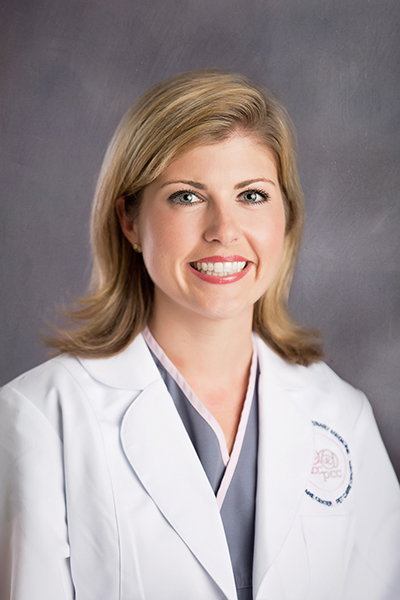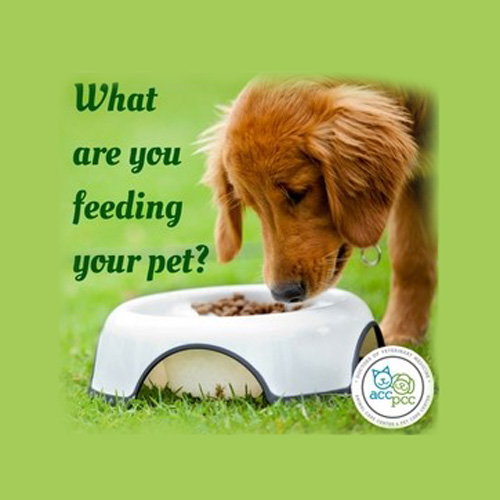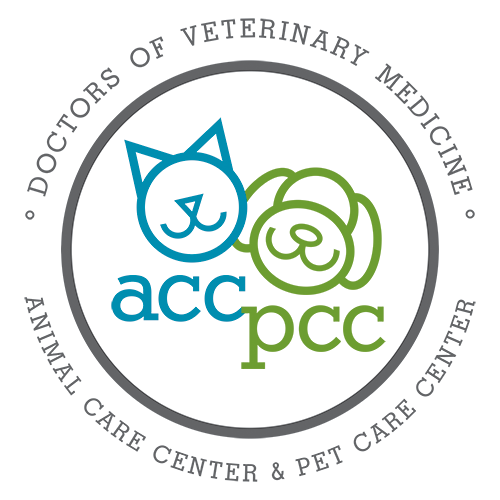Nutrition 101


Dr. Jessica Downing
Many of us, including myself, consider our pets our children, and want to do the best we can to keep them healthy and live as long as possible. One very important aspect of our animal’s health is their diet. Starting from the time they are puppies or kittens, you need to make educated choices about what you feed your pet, how much to feed them, and how often to feed them. Factual information must be provided on pet food labels, but it is important to be aware that the label is also a promotional tool to attract pet owners. This means that much of the information provided – including the ingredient list and use of unregulated terms such as ‘holistic’, ‘premium’ or ‘human grade’ – is of little practical value in assisting nutritional assessment. The veterinary team plays a vital role in helping pet owners make informed decisions about what to feed their pets.
Feeding Puppies and Kittens

One of the first choices you have is small, regular, or large breed puppy food. Generally speaking, small breed refers to puppies that will stay under 10 pounds and large breed refers to any dog that will be greater than 50 pounds once reaching adulthood. Regular puppy food should be fed to puppies who will be somewhere between the two once reaching full maturity. Another important aspect of feeding your puppy is choosing the brand. As a veterinarian, the companies that I currently have the most confidence in recommending are Science Diet/Hill’s, Purina Proplan, and Royal Canin. These three pet food companies employ at least one boarded veterinary nutritionist and do extensive research on their products. They continue to come out with new innovations to keep our pets healthy and help them live longer. Puppies should be kept on puppy formulas until they are fully grown (or at least 90%), which occurs anywhere from 9 months to 2 years depending on breed. At this time your dog should be transitioned to the appropriate adult formula which would again depend on size, nutritional and health requirements. Kittens are usually a little easier because there isn’t quite as much variation in size. The same is recommended that you transition to adult food when the kitten is about 90% of its adult size and weight which is generally at about one year of age.
Transitioning is also an important thing to remember. Make sure to gradually transition to the new diet over 5-7 days. Stopping one formula and starting another, even with the same brand, can cause gastrointestinal issues such as vomiting and diarrhea.
Most puppies and kittens can be fed 2-3 times per day. Look at the feeding guide on the back of the bag and break the total daily amount up into separate feedings. Not all food contains the same caloric amount per cup so be sure to go by the guidelines provided by the manufacturer. Small and toy breed puppies can also be prone to getting hypoglycemia (low blood sugar) so feeding frequent, small meals is very important. These puppies generally need to be fed 4-6 times per day. Fresh water should also be provided at all times.
Feeding Adult and Senior Pets
If you have a healthy adult dog or cat, usually an adult maintenance formula is adequate from the ages of 1-7. Senior pets, 7 years of age or older, should be fed a diet for mature adults/seniors 7+. What many people do not know is that diet can be a very important factor in managing many different types of illnesses, prevent progression of these diseases, and even prolong your pet’s life. Both adult and senior animals may need a prescription diet depending on specific health issues. One of these examples is Science Diet J/D prescription diet. This food contains essential joint supplements to help slow down the progression of arthritis and even alleviate some of the pain and discomfort once the disease process is already active. This diet even comes in a weight control formula if your dog or cat is obese and dropping a few pounds could help alleviate some of the pain associated with arthritis. Our veterinary recommended diets (Science Diet/Hill’s, Purina Proplan and Royal Canin) have pet food formulas to help slow down, prevent, or even in some cases, cure certain disease processes. Some of these include, urinary and kidney disease, skin disease and food allergies, heart disease, obesity, arthritis, diabetes, and more! These diets are extensively tested by veterinarians and proven to work.
Obesity
Preventing obesity is another important health consideration when feeding your pet. Once cats and dogs begin to reach adulthood, their metabolism can start to slow down and they can begin to gain weight. Another thing to remember is that after a spay/neuter in either dogs or cats their daily caloric requirements usually drop by 20-40%. Portion control is VERY important! Unless your pet has a specific health condition, at adulthood, animals can be decreased to once or twice a day feedings – and YES, this includes cats. You should feed the amount for the ideal weight of your animal. This means if your pet weighs 60 pounds, but your veterinarian recommends that your pet lose 10 pounds, you feed your dog for the 50 pound weight requirement. Make sure to measure out the appropriate amount (according to the back of the food bag) and break that up into one or two feedings. Once that amount has been consumed for the day, your pet is done. YOU are in control of how much food your pet consumes. Free choice feeding is NOT recommended because many animals will over eat, which will quickly lead to obesity. Unless your pet has a specific health condition, HUMANS are generally the cause of obesity in animals. And NO, table food is not recommended. I have heard many times from clients that “my dog won’t eat dog food”, but never have I seen a healthy dog starve. Your pets will eventually get hungry and eat what you provide for them. Also, remember to factor treats into your pet’s total daily intake. Even with portion control, treats can add up and lead to weight gain. Obesity can play a role in many problems down the road, including diabetes and arthritis, which can be difficult and expensive to control. Prevention is Key!
In closing, I hope this has helped educate you a little bit about nutrition for your fur baby. I know there are so many options out there and sometimes selecting the best food for your pet can be a very difficult decision. If you have any further questions or concerns, any of our veterinarians at Animal Care Center or Pet Care Center would be happy to assist you and your pet!
